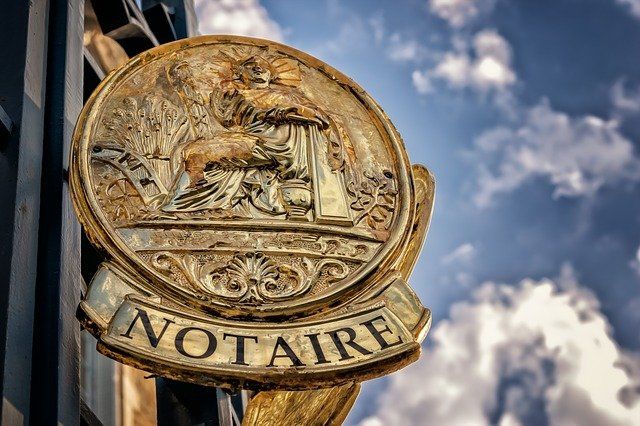If you are Spanish, you are familiar with the prestigious position of the notary and what that person’s job is. However, if you are from another country and buying property in Spain, such as the luxury villas in Marbella, you might not know the role of a notary. The Spanish notary’s job is more extensive than a notary in other countries. Instead of just verifying signatures, a Spanish notary ensures that all parties involved in the transaction understand the documents they are signing, including deeds for real estate purchases.

What Does a Spanish Notary Do?
The Spanish notary goes through several years of schooling because he or she must know the law relating to real estate and other documents published in the register. In the case of real estate, this would be the property register. They must ensure that both parties to the contract understand the contract, that the contract does not violate any laws, and ensure that taxes on the transaction are paid.
Is Filing a Document in the Property Register Mandatory?
No, because the contract between the buyer and seller is private. However, registering your deed in the property register ensures that another person cannot register the same property, leaving you with nothing. You also get additional benefits by registering your property, including the ability to take out a mortgage on the property and protecting you from the vendor’s creditors.
You cannot file a deed in the register without a notary’s signature. When you buy an existing property, you can sign the documents at the earliest convenient time – usually one to three months after signing the contract. If you buy a new property from a developer, you can sign the escritura and make the last payment only after the head architect signs off on the property. While you can sign prior to the certificado de final de obras, we recommend that you wait until you have the certificate in hand.

Do I Need a Lawyer to buy a property in Spain?
No, but we recommend that you retain an attorney when purchasing real estate in Spain. The lawyer and the notary have two different functions. Your lawyer will make the final legal checks on the seller’s title, including checks for licenses, debts, and other checks. The notary ensures that the contracts and deeds are in proper order and that the documents also comply with the law.
Before You Meet the Notary
You should have several items ready before you meet the notary you can see the full list in our Guide for Buying a property in Spain. A bank-guaranteed check from a branch in the country is the preferred method to purchase real estate in Spain. Many sellers will not accept checks from a foreign bank. While most Spanish notaries only require a valid passport, some might require additional forms of identification – always check with your real estate agent, lawyer or the notary before you meet so that your closing is not delayed.
It is better for you to be at the signing in person, but you can use a power of attorney. You sign a power of attorney in front of a Spanish notary. The person you name can then complete your real estate transaction.
During the Signing
All of the parties involved in the transaction will be at the notary’s office. The first thing the notary does is to confirm the identities and some other personal details of everyone. The notary then reads the deeds aloud, usually in Spanish, though some will provide a partial English translation. If you are not fluent in Spanish, we recommend that you bring a translator with you. In some cases, a notary will refuse to sign the deeds unless you bring a translator.
At this point, you need to ensure that the deeds are correct – before you sign them. The notary checks the deeds for legalities – and they vary by region. The notary should confirm the title and ensure that the property does not have encumbrances – at the very least.

If everyone agrees that the deeds are correct, the notary passes them around so all of the parties can sign them. The notary then confirms that the buyer pays any outstanding amounts, which the buyer then pays. Finally, turns the keys over to the buyer.
Once you sign the deed, you still need to pay the taxes and register the deed with the property register. The notary gives you a copy of the deed so you can pay the taxes and turn utilities on. You will need the original deed to file with the property register – your attorney will obtain them within a few days of the signing. However, the notary faxes a notification to the property register so that someone else cannot file a deed before you do. The notification blocks others from filing a deed for 10 days, so you need to register your deed as soon as you receive it.
How Much Does a Spanish Notary Cost?
The government sets the notary fees, and the fees are based on the declared property value and the number of clauses in the deed. The fees could range from 0.1 percent of the declared value for properties that are 400,000 Euros and higher and around 0.4 percent for properties that cost less than 100,000 Euros. If you have a mortgage, you will have additional notary fees for the mortgage documents.
If you are ready to purchase property in Spain, whether a house or a villa like the villas for sale in Nueva Andalucia, contact Andalucia Realty and let us help you find a new home or a vacation home.







